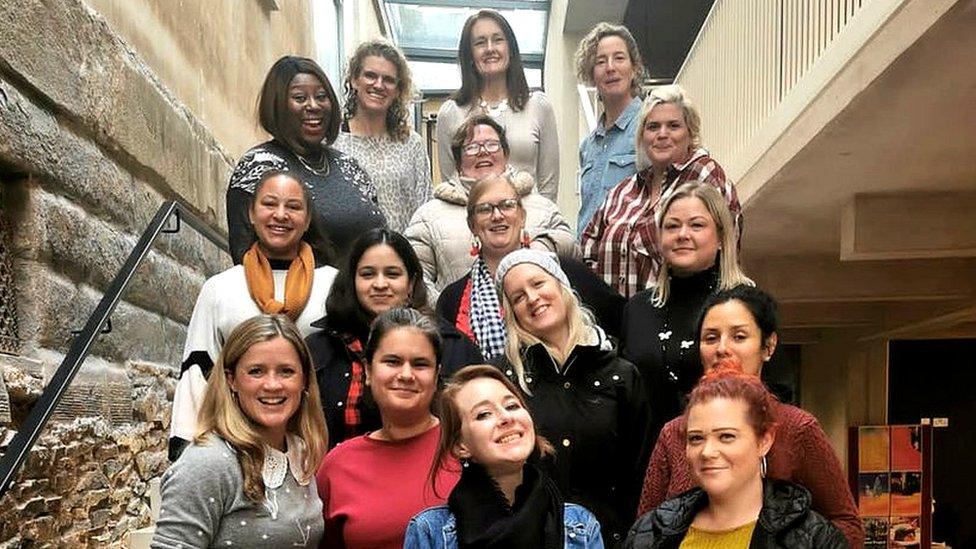'Work scheme for mums was best thing I've done'
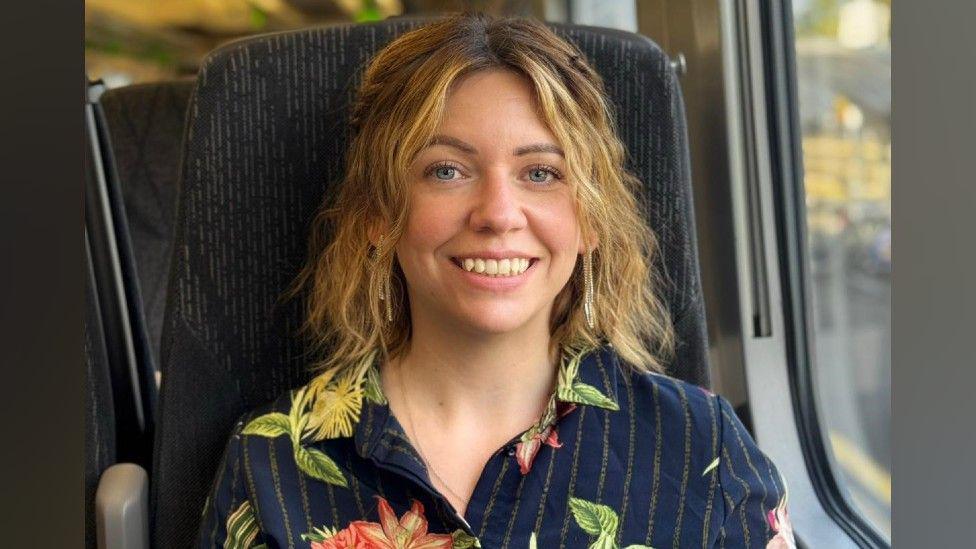
Chelsee Ayling said she felt "not worthy" and her confidence had been knocked
- Published
In September 2024, Chelsee Ayling from Bristol did not know where to turn.
A mum of two boys, one who had health complications due to a heart condition, she had just decided to leave an unhealthy relationship and had been told her new job was not the right fit for her because she had too much on her plate.
Her confidence was knocked, and she felt worthless - so she reached out to a friend who worked at a Bristol-based charity called the Women's Work Lab.
It was training with the charity, which begins operating in Birmingham in 2026, and her own determination, that changed her life.
Women's Work Lab offers free training courses to women who are struggling to find paid work after having children.
"It was really nerve wracking to begin, with walking in and seeing all these different women, and still not having that confidence... not even feeling like I really deserved to be there," Ms Ayling told the BBC.
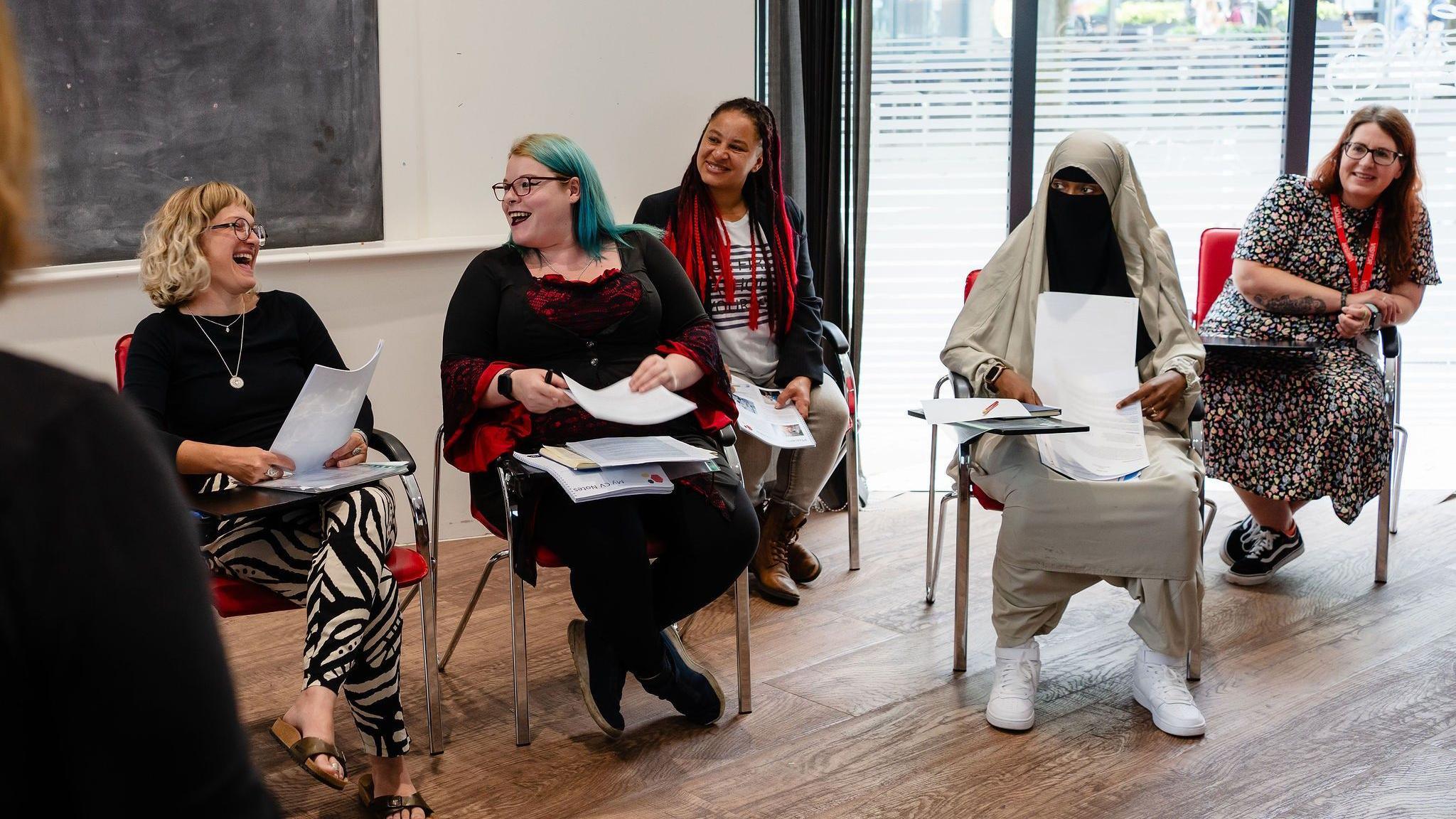
The sessions help women "pick out and highlight" their skills
"Even in that first week, they really focused on why we felt like we weren't good enough, and it was really powerful - because it wasn't straight into how you find a job… it strips it right back to: 'Why do you feel like you don't have that confidence?' And working our way up."
"They focus on the skills you have to be a mum, so it's not just about what skills you have in previous job roles… they really pick out and highlight the skills you need to be a mum and be the CEO of your family, and that those skills are just as important."
Now 35, Ms Ayling said the lab made her realise how many skills she had from life experience alone.
"Working with loads of different agencies because of my son's disability and being in hospital - that's still a skill… from being in an unhealthy relationship, I've got that life experience," she said.
"Also, putting boundaries in place, it's OK to say no to a job if they give it to you, if it doesn't work for my family.
"It was the best thing I've done."
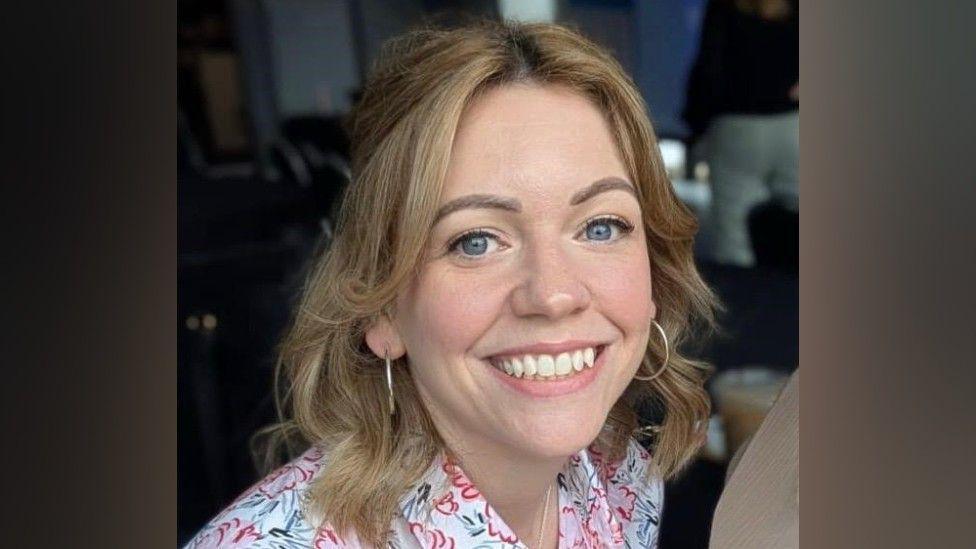
Ms Ayling now works for a charity, using her life experience to offer support to other women
"I left the work lab last December, and by March I secured employment with a Bristol charity that supports women who are also in abusive relationships," she said.
"I managed to use those skills to secure a job with them and I absolutely love my job... I quite often will signpost the women that I support to the work lab."
Ms Ayling also runs peer support groups and has started to study her Level 6 in British Sign Language (BSL).
"My hope is that I can create a support group to deliver to deaf women that are in abusive relationships and make it more BSL friendly," she said.
Her sons are doing well and are in school, and she now has a "wonderful, supporting partner" and two step-daughters.
"Even in respect to personal relationships, having that confidence to put boundaries in place there, has all stemmed from the work lab."
Expansion to Birmingham in 2026
Women's Work Lab is now expanding to Birmingham - it is a free, 12-month programme run in school hours combining classroom-based training, a four-week work placement, and nine months of career support and mentoring.
It will run in a central location in the city, and applications are open for mums over 19 that are receiving state benefits and would like to find meaningful work.
The pilot programme will be launched in January and April 2026.
Get in touch
Tell us which stories we should cover in Birmingham and the Black Country
Follow BBC Birmingham on BBC Sounds, Facebook, external, X, external and Instagram, external.
Related topics
- Published8 November 2024
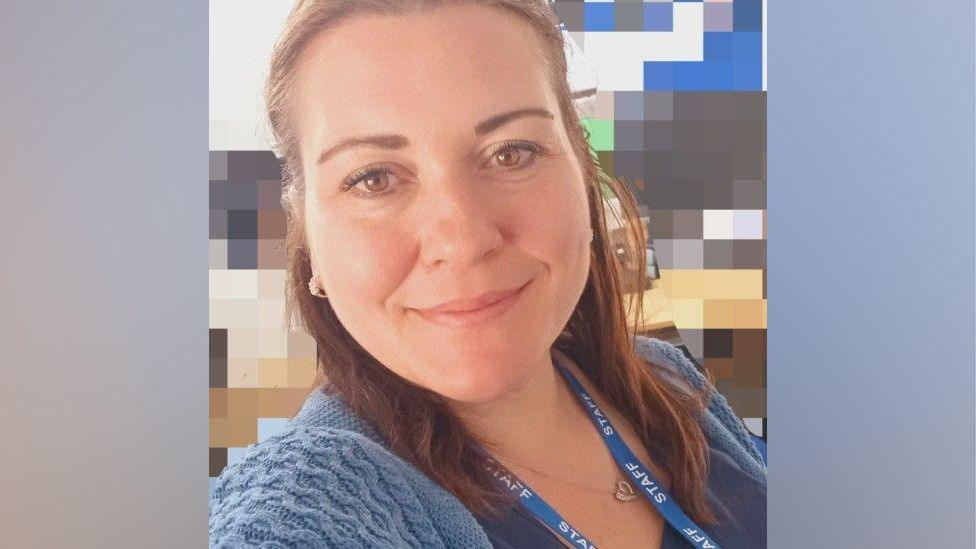
- Published29 January 2022
